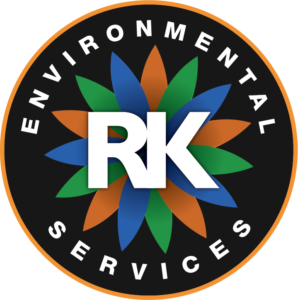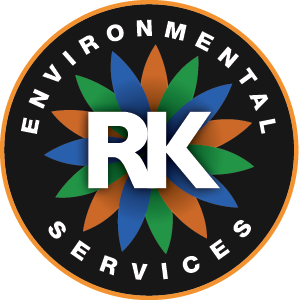Introduction to Snap Traps
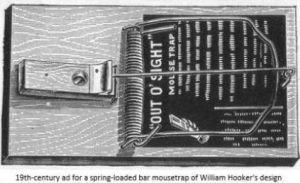
“Build a better mousetrap, and the world will beat a path to your door” is a misquotation of a different statement made by Ralph Waldo Emerson in the late nineteenth century. Mice have been a global concern for much of mankind’s history. Mice are destructive and carriers of deadly diseases, including Bubonic Plague, Hantavirus, and Salmonellosis.
The trap that is credited as the first patented lethal mousetrap was a set of spring-loaded, cast-iron jaws dubbed “Royal No. 1”. It was patented on November 4, 1879 by James M. Keep of New York. The “Little Nipper, patented in 1894 by William C. Hooker, is the trap design that is most frequently used today. It is a simple device with a heavily spring-loaded bar and a trip to release it. The trip is baited with an appropriate bait and as a mouse retrieves the bait the unit is triggered and the spring-loaded bar crushes the rodent’s spine, skull or neck, causing death almost instantly, with minimal suffering. Today’s design and manufacturing processes allows the traps to be mass produced and inexpensive, reducing the need for reuse and assists in sanitary disposal of trap and mouse.
Submitted by: Rich Gibson, CHA, ACE
The Roof Rat
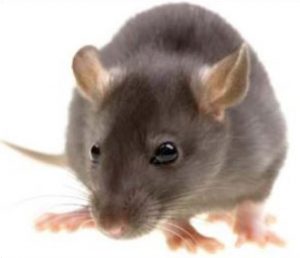
Order: Rodentia Family: Muridae Genus: Rattus Species: R. rattus
When it comes to commensal rats, the Roof Rat is the smaller of the two, with the Norway rat being larger. The roof rat is 16″ total with the body being 6” to 8″ of body and another 6” to 8″ for their tail. Often referred to as black rats or ship rats, this rat gets its name from its tendency to find shelter in the upper parts of buildings. Roof rats inhabit coastal states and the southern third of the U.S.
Roof rats not only damage materials by gnawing through them, but they also contaminate stored food and serve as vectors of dangerous diseases. Roof rats are considered omnivores and eat a wide range of foods, including seeds, fruit, stems, leaves, fungi, and a variety of invertebrates and vertebrates. They are generalists and are not very specific in their food preferences. This is evident by their tendency to feed on any meal provided for cows, swine, chickens, cats, and dogs.
Control of roof rats is similar to most rodent control measures, prevention, of course, is key. If an infestation is present the use of snap traps carefully positioned on travel paths is effective, but, as with rats, they are neophobic and may avoid traps. Baiting is also an effective method. No matter which method is chosen, patience is always necessary.
Submitted by: Rich Gibson, CHA, ACE
COVID-19 Virucidal Program
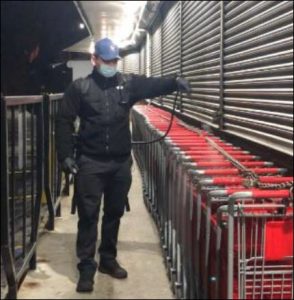 In early March, the United States made the decision to close all businesses that were defined as non-essential. On the other side of the spectrum, essential businesses offering items necessary for survival such as food, drinks, medicine, transportation and shelter. One of the most affected industries by the COVID-19 crisis as we all know it, was the food industry. Food manufacturers and grocery stores needed to continue supporting our food supply chain in order for people to get the food they need.
In early March, the United States made the decision to close all businesses that were defined as non-essential. On the other side of the spectrum, essential businesses offering items necessary for survival such as food, drinks, medicine, transportation and shelter. One of the most affected industries by the COVID-19 crisis as we all know it, was the food industry. Food manufacturers and grocery stores needed to continue supporting our food supply chain in order for people to get the food they need.
As people continued to stay sheltered in their homes to help flatten the curve, essential workers in the food industry are needed
now more than ever. If people did not have the courage to show up to work in support of the food supply chain, the US as a country would be at war with a much larger issue: a food shortage.
The question is then raised, how do we support the essential workers who are risking their lives on a daily basis to do so much for the rest of the public? Across the board, food manufacturers because of the amount of people they are exposed to. When employees are sick, production output is lowered. When production output is lowered, food supplies in stores are limited.
Two months ago, RK Environmental Services (RKE) took action to support our clients and their staff with our launch of our Virucidal Program. The Virucidal program offers an extra layer of protection to employees and retail customers with the use of an EPA registered product, effective against the novel coronavirus. This additional line of disinfection gives employees a reassurance that their organization is doing all they
can to protect their employees. With the use of a spraying application to hit all areas where the virus may be, RKE is protecting not only their employees, but the food supply chain as a whole.
One RKE clients with a staff of around 600 employees prior to the virus, was greatly affected by COVID-19. The organization struggled to get even half of their staff to show up. It was not that half of their staff were
sick, but instead, scared to show up to work because of the virus. The Virucidal program gave their staff the assurance that their organization is being proactive and since the launch of the program, a significant
number of employees have come back to work in order to get production back to almost full capacity. Another client, in this case a grocery store, had an employee die of the COVID-19. As you can imagine,
employees were uneasy, making it a constant struggle to get people to show up to work. Since the launch of the program at this location, store employees and consumers were given an extra sense of
security resulting in more personnel reporting to work. If this store took no action after its loss of an employee, it would be hard to say if anybody would return to work which would have a direct effect on
the community’s food supply.
As the American people slowly make their way back into a “normal” routine, the question becomes what happens with the virus. Sanitation and safety will continue to be at the forefront of everyone’s daily routine. The Virucidal program will be just as important as ever to prevent an outbreak like the one in the past. Everyone must continue to support our families, friends, and food supply with taking proactive
action against this “invisible enemy.” It is RKE’s duty, as leaders in the industry, to continue to support clients, consumers, and the supply chain.
